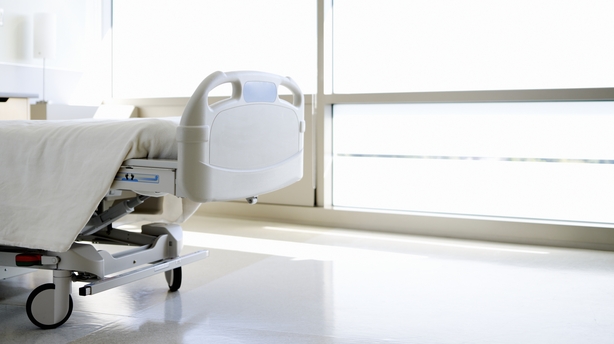Positive experiences in care found in end-of-life survey

A national survey which asked bereaved people about care provided to loved ones at the end of their lives, found positive experiences across several areas of care.
The National End of Life Survey was conducted in partnership between HIQA, the HSE and the Department of Health following a recommendation of the COVID-19 Nursing Homes Expert Panel.
4,570 people who registered the death of a family member or friend that occurred between September and December 2022 were invited to take part.
The survey found that most participants had confidence and trust in the healthcare staff who were caring for their relative or friend.
They also felt staff explained their relative or friend’s condition and care in an understandable way.
Almost 74% of participants rated the care that their relative or friend received at the end of their life as ‘very good’, 15% rated it as ‘good’, while 11% said that their relative received ‘fair’ to ‘poor’ care.
Several areas for improvement in end-of-life care were identified.

Issues highlighted included continuity, availability and responsiveness of care, timeliness of care and support for emotional needs.
Some participants felt there was a lack of coordination between healthcare staff during the last two days of their relative or friend’s life.
Some felt that their relative or friend did not get help from healthcare staff as soon as they needed it, as well as help and support with their emotional needs (such as feeling worried, feeling anxious, feeling low).
In addition, participants said that they were not given enough help and support by healthcare staff to talk to children or young adults about their relative or friend’s illness.
23.9% of participants answered ‘no’ when asked if there was good coordination between the different services and staff that cared for their relative or friend in the last three months of their life.
Hospices received the most positive ratings across all survey questions.
Participants whose relative or friend died in a hospice were more likely to rate their end-of-life care as ‘good’ or ‘very good’ (98%), when compared with a nursing home or residential care facility (92%), hospital (84%) or those who died at home (89%).
There were a number of other notable differences in responses to questions based on where the person died.
For example, 99% of participants whose relative or friend died at home said that they had died ‘in the right place’, compared with 94% for hospices, 89% for nursing homes and 75% for hospitals.
In addition, participants were most likely to say they always felt welcome to visit their relative or friend in a hospice at any time (95%) in the last three months, compared with a nursing home (81%) or a hospital (58%).

When asked about visiting hospitals and other healthcare settings in the last two days of their relative or friend’s life, most participants said they were given the option to visit at any time, including outside of regular visiting hours
The people who died experienced a variety of pathways of care, involving multiple care settings and services in the last months and days of their lives. The most common place of death was a hospital (39.4%), followed by a nursing home, home and hospice.
Differences were seen in the types of deaths that took place across settings. For example, those who died in hospitals typically had shorter illnesses than those in other settings.
The HSE will use the survey findings to inform the development of quality improvement plans at national and local levels.

The Minister for Health Stephen Donnelly, acknowledged that the survey was a particularly difficult task for people, following the death of their loved ones.
While he noted high levels of satisfaction with the level of care received, he also recognised that there were areas for improvement, particularly regarding the integration and coordination of services.
“The findings of the survey will be used to inform Department policy in improving end-of-life care for everyone. It will also make sure that the goal of providing the right care, at the right time, in the right place and by the right people is achieved.”, he said.
Minister of State for Mental Health and Older People Mary Butler, welcomed the significant level of satisfaction reflected in the survey findings in relation to nursing home care and said it reinforced the ‘commitment’ to provide compassionate end-of-life care.
Minister Butler also acknowledged improvements could be made to ensure people receive the dignity and support they deserve nearing end of life.
“Strong communication between care providers, residents and their families is paramount. The insights gained will help inform the further rollout of the CARU end of-life programme for the nursing home sector which is being delivered by the Irish Hospice Foundation and the All Ireland Institute of Hospice and Palliative Care, in collaboration with the HSE.”, she said

CEO of the HSE Bernard Gloster expressed gratitude to those who participated in the survey and shared their experiences of the care their loved ones received in the “last precious months and days” of their lives.
“Improving the experience of end-of-life healthcare services is a key priority for us. This survey provides valuable information and important insights across our services in hospitals, hospices, nursing homes and the community. It lets us know what is working well, such as hospice care which is rated highly, and also, perhaps more importantly, the areas where we can and must improve”.
The Health Information and Quality Authority CEO Angela Fitzgerald said the survey had provided the watchdog with valuable insights into the final days and months of those who are in end-of-life care, as well as the experiences of their relatives and loved ones.
“The survey findings also demonstrate the importance of close integration and coordination between the care settings and the services that are provided in terms of overall care experience for patients and their families.”, she said.
Paula O’Reilly who is the CEO of the Irish Hospice Foundation said any focus on end-of-life care must also examine the impact on those who are left to grieve the death of their loved one.
“This survey will provide valuable information on the emotional impact of end of life on family and friends. Irish Hospice Foundation will continue to advocate to ensure people have access to appropriate bereavement care and supports.”





